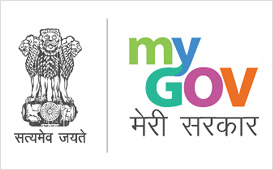he India story - Leading the ChangeBy Soma Banerjee *
India’s position on the global stage as a vibrant democracy and an economic powerhouse is now a well-established fact. The role of Asian economies over the past few years has only reinforced the strength and importance of India on the global centre-stage. China and India pushed demand even as large economies continued to shrink (read European nations) or just about find its feet like the US economy. Indian markets held on even as the economy battled against the global pressures of recession and showdown. Exports fell sharply in the first half and the rupee remained volatile as it fought hard to find its new level. The tide has turned and India is on a bounce back thanks to its resilient business houses, industrious entrepreneurs and innovative workforce who have fought hard showing their capacity to treat every challenge as a new opportunity.
Indian growth that had dipped to 5% is likely to be arrested to this level in this financial year even as green shoots are appearing to take the growth story on the recovery path in 2014. The government has shown conviction in its policies and has worked towards opening up the economy with greater liberalization in several areas that have now attracted investments from foreign investors across the globe. While opening up foreign direct investments in multi-brand retail has already seen some action with majors like Tesco and Wal-Mart planning to set up stores in India. Further India’s decision to open up the aviation sector, a key infrastructure sector, has already seen three big investment proposals over a few months. While Tata and Singapore Airlines are tying up for new services, Eitahad has joined hands with Jet Airways even as low cost Air Asia begins new services for the Indian skies.
The total value of domestic deals in India during the third quarter of 2013 was US$ 1.31 billion, up from US$ 1.29 billion during the corresponding period of 2012. While majors like British Petroleum has brought in the largest FDI in the energy sector, pharmacy majors and investments by Eitahad in the Jet-Eitahad deal and the Japanese in the Industrial corridor are telling instances of inbound investments.
The strength of a vibrant democracy coupled with a robust judiciary and regulatory framework has only added to the India story. A market that has grown consistently adding new consumers every day even as technology is helping spread the depth and width of the markets. Investors in India have to keep pace with the growing and varied demand, a market that challenges companies and investors almost on a daily basis.
Overseas direct investment by Indian companies stood at US$ 3.24 billion in July 2013, registering an increase of 89.5 per cent from US$ 1.71 billion invested in June 2013, according to data released by the Reserve Bank of India (RBI).
The investments were made across 461 transactions. Reliance Communications, Apollo Tyres, Zee Entertainment Enterprises and Tata Communications, being the major investors. A recent report by the US India Business Council (USIBC) has stated that Indian investments in the country has reached US$ 11 billion and has generated over 100,000 jobs there. Large investments in refineries, steel plants and transportation in African countries and other Asian economies have been the talking points in business circles.
As India moved on in search of energy security, companies like government owned ONGC and private majors like Reliance Industries and the Essar group to name a few invested in new oil fields and gas discoveries. Steel majors like Jindals and Essar too made their mark. Bharti Airtel, India telecommunication major made inroads into the African continent as its spread its services touching lives of Africans. Another case in point is TVS Motors that is planning to establish a two-wheeler assembly line in Uganda and launch two motorcycle models in the African nation.
The Europe India Chamber of Commerce (EICC), a body that promotes bilateral trade between the European Union and India, has recorded Indian companies to have invested US$ 56 billion across the continent during 2003-2012, of which EUR 29 billion (US$ 38.47 billion) was invested through mergers and acquisition transactions. The report titled ‘Indian Companies in the European Union: Reigniting Economic Growth’ also mentioned that Indian business houses employ 1.34 lakh professionals in Europe, including 40,000 new jobs generated by 511 green-field investments. Tata Group is the largest employer in Europe, which counts about 80,000 employees across its 19 companies there. India accounts for a substantial 47 per cent of the green-field investment and 63 per cent of the employment creation in the UK, according to the report.
Investments in Asian economies by ONGC Videsh Limited (OVL), Jubilant Oil and Gas, CenturyPly, Tata Motors, Essar Energy, RITES, Escorts, Sonalika Tractors, Zydus Pharmaceuticals Ltd, Sun Pharmaceuticals Ltd, Ranbaxy, Cadila Healthcare Ltd, Shree Balaji Enterprises, Shree Cements, Dr. Reddy's Laboratories Ltd, Cipla, Gati Shipping Ltd, TCI Seaways and Apollo bear testimony to India’s expanding business footprint. Indian conglomerate Aditya Birla Group is intending to invest around US$ 1 billion to set up a chemical/fertiliser plant in the US even as it rakes in more than half of its US$ 40 billion-turnover from overseas markets according to a report by IBEF.
These numbers and statistics that find places in global dialogues go much beyond just official data. These are stories of how Indian business houses and investors have partnered their counterparts across the globe to reach out to new investors and consumers.
India’s journey on the global stage is a story of emerging economies that are set to change the rules of the game in this century. The changing dynamics of the economic order that has made the world flat today will give an opportunity to show India’s strength as an economic and knowledge power even as it basks in its rich historical heritage.
* Soma Banerjee is a National Economics Editor at The Economic Times, India.
She can be reached at  somaet [at] gmail [dot] com somaet [at] gmail [dot] com
|








